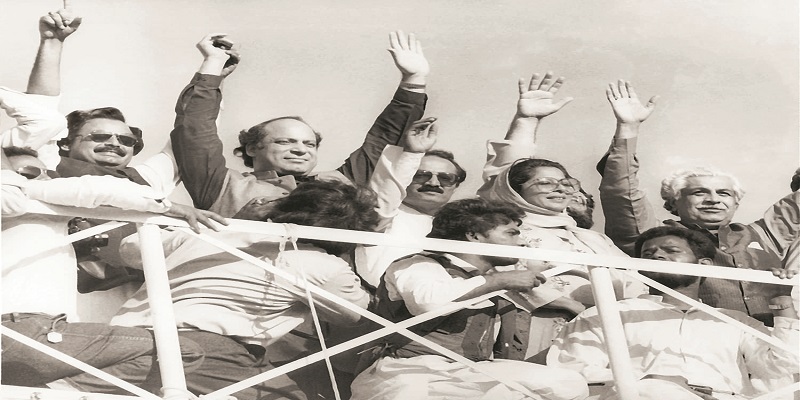The Rise and Fall of Islami Jamhoori Ittehad Pakistan's Political Landscape
The Islami Jamhoori Ittehad (IJI) was a political alliance formed in Pakistan in 1988, bringing together various right-wing parties with a shared ideological and political agenda. The alliance emerged in response to the challenges faced by conservative and religious parties in the country during a period of political transition. To provide a comprehensive understanding of the Islami Jamhoori Ittehad, it is essential to delve into its historical background, its formation, key leaders, objectives, achievements, and eventual dissolution.
The political landscape of Pakistan has been marked by periods of military rule interspersed with short-lived democratic governments. The 1980s witnessed the military regime of General Muhammad Zia-ul-Haq, who came to power in a coup in 1977. Zia's regime was characterized by a conservative and Islamization agenda, with policies aimed at promoting Islamic values in society. However, by the late 1980s, there was a growing demand for a return to democratic governance.
In the lead-up to the 1988 general elections, conservative and religious parties in Pakistan recognized the need for a united front to counter the secular and liberal forces. The Islami Jamhoori Ittehad was formed as a coalition of various right-wing political parties, including the Pakistan Muslim League (N), Jamaat-e-Islami, and other smaller religious groups. The alliance aimed to present a cohesive front in the elections and promote its shared ideological vision for Pakistan.
The Islami Jamhoori Ittehad brought together prominent leaders from different constituent parties. Among them, Nawaz Sharif, who later went on to become Prime Minister of Pakistan, played a central role as a key figure in the alliance. Other leaders included Maulana Fazl-ur-Rehman from Jamiat Ulema-e-Islam (JUI), Qazi Hussain Ahmed from Jamaat-e-Islami, and other influential figures from various religious and conservative parties.
The primary objective of the Islami Jamhoori Ittehad was to establish a government in Pakistan that would adhere to Islamic principles and promote conservative values. The alliance aimed to counter what it perceived as the secular and liberal influences in the political arena. It advocated for policies aligned with Islamic law, social justice, and a conservative approach to governance.The IJI contested the general elections of 1988, presenting itself as a viable alternative to the more secular political forces. The alliance performed well in the elections, securing a significant number of seats in the National Assembly. However, the outcome was not sufficient to secure a majority, and the Pakistan Peoples Party (PPP) emerged as the leading party.
Despite not forming the government, the IJI played a crucial role in shaping the political landscape. The alliance became a significant opposition force, challenging the policies and governance of the PPP-led government. The period marked by a complex political dynamic, with the IJI exerting pressure on the ruling party to align its policies with the conservative agenda championed by the alliance.
The Islami Jamhoori Ittehad faced internal challenges and divisions among its constituent parties, which eventually led to its dissolution. Infighting and differences over various issues, including governance and political strategy, weakened the alliance. The legacy of the IJI is often seen as a mixed one. While it failed to sustain its unity and translate its electoral gains into a prolonged political influence, it did contribute to shaping the discourse on Islamic values in Pakistani politics.
The dissolution of the IJI did not mark the end of the influence of conservative and religious parties in Pakistani politics. These parties continued to play a role in subsequent elections and remained important actors in the country's political landscape. The experience of the IJI highlighted both the potential and challenges of forging alliances among diverse religious and conservative groups in pursuit of a shared political agenda.
The Islami Jamhoori Ittehad represented a significant chapter in the political history of Pakistan. Formed in response to the changing political dynamics of the late 1980s, the alliance aimed to provide a unified platform for conservative and religious parties. While it achieved success in the elections and played a role in shaping the political discourse, internal divisions and challenges led to its eventual dissolution. The legacy of the IJI lies in its attempt to establish a political alternative rooted in Islamic principles, contributing to the ongoing dialogue about the role of religion in Pakistani governance.

